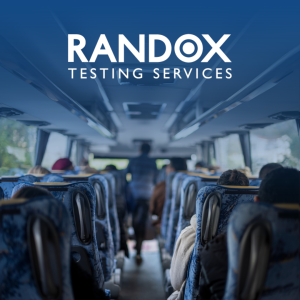Is it Dangerous to Drive with a Hangover?

Is it Dangerous to Drive with a Hangover?
Driving following drugs or alcohol consumption is a well-documented issue, particularly when it comes to road safety. However, what is often overlooked are the lingering effects the morning after—when individuals may not feel impaired but are still experiencing the aftereffects of intoxication. Allowing an employee to drive with a hangover does have post-intoxication effects, such as reduced reaction times, fatigue, and impaired decision-making, are just as concerning and can have severe consequences in the workplace, particularly those of the Construction, transport, manufacturing and warehousing sectores.
At Randox Testing Services, we recognise the importance of maintaining safety in the workplace, not only by preventing intoxicated driving but also by managing the less visible dangers that arise from post-drinking or drug-use symptoms. These issues might not always fall under the jurisdiction of law enforcement, but they are critical concerns for employers across various industries.
Understanding the Risks: The Morning After
The effects of alcohol and drugs don’t vanish as soon as the initial intoxication wears off. While an employee might no longer be legally under the influence, the morning-after effects, such as headaches, dizziness, dehydration, and slower cognitive function, can still pose significant risks—especially for those operating vehicles or heavy machinery.
The statistics are alarming: in 2022, there were 17,835 drug-driving cases and 33,099 drink-driving cases in the UK alone. While many of these incidents may be stopped by law enforcement during the period of intoxication, the morning after is a grey area where risks continue, unnoticed, until an accident occurs.
The Employer’s Responsibility
Employers have a vital role to play in managing these risks, particularly in industries such as transportation, construction, and emergency services. If employees return to work still experiencing the effects of alcohol or drugs, they may not be fully alert or capable of performing their duties safely. This not only increases the likelihood of accidents but also has legal and financial implications for the company.
- Safety Concerns: Employees may feel better after sleeping, but lingering effects could still impair their ability to operate vehicles or perform tasks. This is particularly concerning in safety-critical roles such as logistics or public transportation.
- Legal and Financial Consequences: While the police may not be able to intervene unless an incident occurs, employers can still face liability if accidents happen due to post-intoxication effects.
- Productivity Loss: Employees dealing with hangovers or lingering effects of substance use are less efficient, leading to decreased productivity and potential delays.

How Employers Can Mitigate These Risks
To tackle the issue of post-intoxication effects, employers may consider expanding their drug and alcohol policies to encompass more than just on-site consumption. Here are some strategies to consider:
- Regular Testing: Implement random and regular testing to detect not just current intoxication but the lingering effects of past substance use. This can help identify employees who may be at risk of working while impaired.
- Employee Education: Conduct educational campaigns to raise awareness about the dangers of driving or working the morning after substance use. Employees may not realise that they are still a risk to themselves and others even after the effects seem to have worn off.
- Support Systems: Provide employees with access to support programs such as counselling and rehabilitation services for those struggling with alcohol or drug use. Helping employees manage their use can reduce long-term risks.
- Policy Enforcement: Ensure strict enforcement of the company’s drug and alcohol policies, making it clear that any breach will result in appropriate consequences.
Is it Dangerous to Drive with a Hangover? – Conclusion
While intoxication on the roads and in the workplace is a well-recognised problem, the effects on employees driving with a hangover the morning after should not be ignored. Employers need to take proactive measures to ensure their workforce is not just sober but fully capable of performing their duties safely.
At Randox Testing Services, we provide comprehensive drug and alcohol testing solutions to help employers maintain a safe, efficient workplace. Our range of testing methods, from urine and hair samples to oral fluid and blood tests, ensures accurate and reliable results, allowing you to manage the risks associated with post-intoxication effects effectively.
For more information on our drug and alcohol testing services, please contact us at testingservices@randox.com or visit our website at www.randoxtestingservices.com.
References
- Stephens, M. (2023). Drug driving now more widespread than drink driving, police report reveals. The Telegraph. [online] 22 May. Available at: https://www.telegraph.co.uk/news/2023/05/22/drug-drunk-driving-police-statistics/.